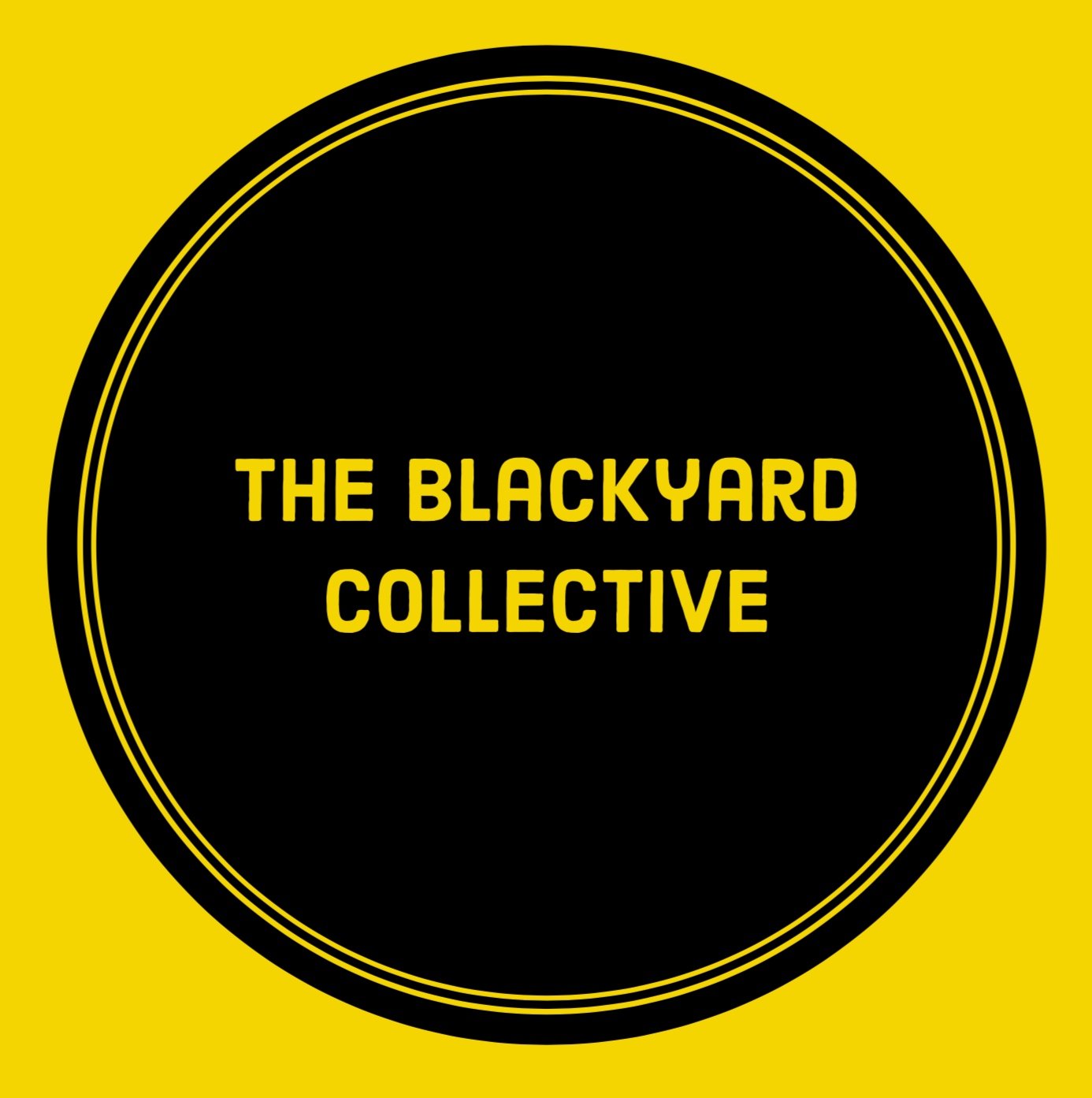Getting Sober Isn’t a Fairytale
Jamie is a Black woman, with black blown-out hair wearing a colorful tube dress and sunglasses, smiling and waving a colorful fan, standing on a pier in front of water (left); Jamie has Black waving hair, smiling and wearing a black blazer and black silk blouse (center); Jamie is leaning with one knee on a brown sofa in front of a window. Her hands are on her hips. She is wearing a black knit hat, denim shorts, and a multicolored shirt (right). Images courtesy of Christian Ledan Photos.
One of the first things you notice about the Blackyard Collective board member, Jamie, is her smile; it takes over her entire face, competing with her bright, open eyes for your attention and daring you not to smile back. Then there’s the laugh - warm and deep in an exuberant and comforting way. You know that one friend that you’ve never heard anyone say a negative word about? This is Jamie today, but it wasn’t always the case. It has taken her a long time to become the woman she is today, and her story is one of perseverance, resilience, connection, and, ultimately, joy.
Jamie’s recovery journey started in 2016 in Los Angeles when she first went to rehab for her crystal meth addiction and decided to get sober. She stayed three weeks before being kicked out and living on the streets. She soon became comfortable living a life of day-to-day survival until one night when she was washing up in a gas station, looked up and saw her reflection in the mirror.” She thought, “This wasn’t what I wanted for my life and what I deserve,” [but] I still don’t know how to change it.” That was when a seed was planted that happiness might be possible in her future.
After a while, Jamie ended up in New York. It was a new city but the same cycle of day-to-day survival. One day, she thought again about the life she wanted and decided it was finally time to get it. She went to GMHC to attend a Friday night 12-step meeting, which she assumed would be a small gathering. Instead, “ it was packed with so many people, and I listened to what they were saying, and I immediately felt at home.”
Getting sober isn’t a fairytale. Relapse is not uncommon, and it can be a challenge not to internalize the idea that a relapse means “ I’m bad.” Community and connection are crucial in those moments, for support, comfort, and reminders that we are loved and are enough in a world that tells many of us that we are valued less than others. Though Jamie had several years of relapses, she always made it back to the rooms because it was now a place where she felt at home after so many years without one. Self-love has been an important part of her journey. When she was younger, Jamie experienced internalized racism, resulting in her wanting to “talk white, act white, and be white.” That is no longer her reality, and she credits The Blackyard Collective as part of her Black self-love journey, allowing her to appreciate all parts of her identity, including her Blackness.
“I now see how I progressed over these many years and learned my voice mattered when I never did before. I get so much out of this community, and I also get to contribute to it.”
The Blackyard Collective is one of the ways Jamie has been able to give back. She knows that seeing people who “look like you, who have made it and are doing the work” can make a huge difference for someone coming into recovery. She can often be seen reaching out to newcomers, inviting them to coffee or the movies with other fellows, and trying to help them as she has been helped.
Though recovery rooms are becoming more diverse in larger cities, they are still overwhelmingly white. BIPOC and Black spaces are crucial for talking about cultural and racial issues that can factor in both addiction and recovery. The perception is that Black people enter recovery at lower rates than other groups, but figures show that’s not true. They do, however, leave recovery at a significant percentage, and many have said that a factor was connected to cultural and racial isolation. With the Blackyard Collective, there are places and events where people get to share their full selves.
When I asked Jamie of a favorite Blackyard Collective memory, she didn’t hesitate. “ It was the first time I went to a play.” About thirty Blackyard members went to see the Black queer musical Strange Loop in 2023. The play's creator, Michael R. Jackson, donated ten tickets for people who might otherwise not be able to go, and Jamie was one of those who got a ticket. Jamie was silent for a moment then said, “ I’m tearing up right now thinking about it because I’d always dreamed of living in New York and going to plays, and seeing that just made me see that I’m out here making my dreams come true because of this group.” She also mentions car trips to the yearly Provincetown retreat. BBQs as memories, and “ also the laughter, so much laughter.”
Before her addiction, Jamie had her own business and apartment. Today, she has a new job that she loves, a beautiful new apartment with bright big windows, and she has a lot of hope. “I’m becoming the person I knew I could be,” she says. “Now, if thoughts of relapsing come up, I think of all that I would lose and all I have gained over these last years.” She brings up gratitude for the life she has today. “I’m very happy, and I’m very proud,” and then she breaks out in one of her big, beautiful laughs.




